












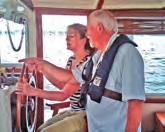
The Annapolis School of Seamanship is dedicated to educating and empowering mariners with the knowledge and skills necessary to make informed, safe decisions when operating and maintaining a vessel. Our courses will enhance your confidence level, strengthen your skills, and make you a safer, more informed boater. Learn from experienced industry professionals specializing in a variety of disciplines. Most classes are team taught by skilled licensed captains and industry trade experts. This unique blend incorporates both practical operator experience and professional technical knowledge.
Our Classroom Training courses are designed to enhance the knowledge and skills of both recreational boaters and professional mariners. Although these courses are not designed to turn students into experts, graduates will gain core knowledge allowing them to better service, repair, and upgrade their vessel or to know when professional consultation is necessary.
We also offer courses for professional mariners in compliance with the United States Coast Guard (USCG) licensing requirements specifically designed for mariners to earn their Master 100-Ton License, OUPV “6-Pack” License, or endorsements.
We are located in Annapolis, Maryland, convenient to both Washington, D.C., and Baltimore. Our students hail from all over North America, including Alaska, Hawaii, and Canada, to visit our beautiful, historic maritime town.

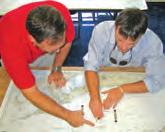
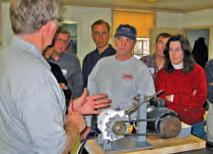
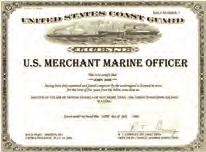

c
c
s
g


Topics:
This two-day class is designed for new as well as longtime boaters wishing to improve their knowledge of boat operation and safety. Through hands-on work aboard, the student will learn about docking, line-handling, rules of the road, and safety aboard. Participation in this course satisfies the requirements of the Maryland Basic Boating Safety Certification.
• Boat-handling, docking, and maneuvering
• On-water safety
• Knots and line handling
• Rules of the road
• Operating at speed
• Weather
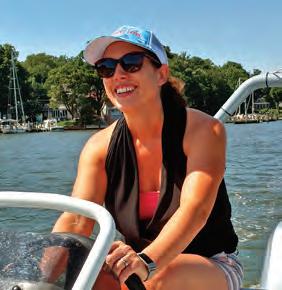
Similar in content to the Basic Boat Operator course, Women at the Wheel offers women the skills and confidence to safely and effectively skipper their own powerboat.
By the end of the classes, students will gain confidence operating small, single outboard powerboats. Upon successful completion of the course students will receive their Maryland Safe Boating certificate, which meets all mandatory boating education requirements in 49 U.S. States.
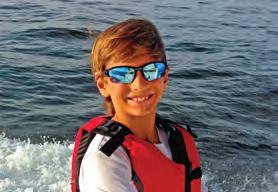
Topics:
• Safety
• Boat handling
• Man Over Board
• Docking
• Fueling
• Navigation
The Jr. Captain’s Program is a 5 day (halfdays) on-the-water program for kids from grades 6-9 (11-15 yrs old). By the end of the week, students will gain confidence operating small, single outboard powerboats. Upon successful completion of the course students will receive their Maryland Safe Boating certificate, which meets all mandatory boating education requirements in 49 U.S. States.
• Water Sports basics
• Tubing safety
• Line handling
• Knots
• Weather Awareness
• Boating Apps
Students will learn and practice these skills through on the water training with additional classroom reinforcement. By the end of the week, students will gain confidence operating small, single outboard powerboats.
Jr. Captains Level 2 is for students aged 12-16 who have completed the Jr. Captains Level 1 course. The class is 5 days (half-days) taught almost entirely on the water aboard larger boats than used by Level 1. Students will upgrade their Jr. Captains Certification Card from class A (less than 16’) to Class 1 (16’-26’) vessels, and upgrade area of operation to Bays and Sounds.
Topics:
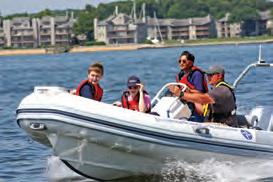
• Overview of startup procedures including fueling and checking oil.
• Slow operation, maneuvering, docking, and line handling
• Man Overboard
• On-plane operation, speeding up, slowing down, and emergency stops
• Course and avoidance steering maneuvers
• Rules of the Road and operating procedures
• Navigation, route planning, compass, and use of GPS and Chart plotter
• Identifying buoyage and other markers on the water.
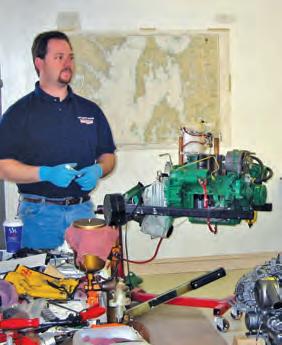
This 12-hour class is designed to benefit both recreational boaters and professional mariners who operate vessels equipped with diesel engines. The course covers all types of diesel engines and is not brand specific. While no previous experience is necessary, we have had skilled gasoline engine and automotive mechanics take this class to learn the unique characteristics of marine diesel engines. Upon completion of this course, students will be able to understand, troubleshoot, and perform basic preventative maintenance and repairs to their diesel engine. Throughout this course, students receive both lecture and hands-on instruction utilizing both a working diesel engine and a cutaway diesel that offers visual access to its inner workings. The cutaway engine enables students to easily make the transition from theoretical to practical understanding of a diesel engine, while the working engine allows each student to perform hands-on procedures in the classroom.
Although this course is not designed to turn boat owners into expert mechanics, graduates gain a working knowledge of marine diesels, have the confidence to know when an experienced mechanic is needed, and are better equipped to communicate with industry professionals.
Topics:
• Principles of Operation
• Anatomy of a Diesel Engine
• Maintaining a Marine Diesel Engine
• Basic Troubleshooting
Prerequisite: None

Troubleshooting Topics:
• Failure to crank
• Failure to fire
• Overheating
• Smoking (white, blue, black)
• Misfiring
• Knocking
• Runaway
• Hunting
• Hydrostatic Lock
• Transmission Problems
Maintenance & Repair Topics:
• Service Cooling System
• Perform Compression Test
• Adjust Valve Clearance
• Service/Rebuild Injector
• Adjust Engine Idle
• Check Injection Timing
• Engine Alignment
Prerequisite: Marine Diesel Basics
This 2-day course is designed for graduates of the Marine Diesel Basics class looking for further instruction in troubleshooting marine diesel engine failures and marine diesel maintenance and repair. Participants receive both demonstration and handson training on working diesel engines. Students work in small teams of 2-3 per engine to solve typical problems and perform many of the following maintenance and repair procedures:

This 2-day class is designed for both recreational boaters and professional mariners looking for a better understanding of marine electrical systems as well as practical skills such as troubleshooting and installing simple circuitry. The electrical systems class covers basic electrical theory, system design, maintenance, and basic troubleshooting and repair skills. Students receive lecture, demonstrations, and hands-on instruction utilizing multimeters and electrical circuitry developed for the course.
Upon completion of this course, students are able to understand basic electrical theory, DC system design, troubleshoot simple electrical failures, and create basic circuitry for DC installations. Although the course is not designed to turn boat owners into marine electricians, graduates have the confidence to troubleshoot basic electrical problems. They will also know when an electrician is needed, how to tell if the marine electrician is qualified, and are better equipped to communicate with industry professionals.
Topics:
• Electrical Safety
• Basic Electrical Theory
• Understanding Basic Circuitry
• Using Multimeters
• Batteries and Monitors
• Wires and Switches
• Circuit Protection and Wiring
• Short Circuits
• Chargers and Inverters
• Alternators and Regulators
• Distribution Panels and Switches
• Basic System Design and Power Management
Prerequisite: None

This 2-day class is designed for graduates of the Marine Electrical System Basics class who are looking for further hands-on training in troubleshooting electrical failures as well as designing and installing new equipment and circuitry. This course will take the student’s understanding of basic electrical components to the next level through examples, demonstrations, and hands-on training. Students will work in small groups to troubleshoot and resolve faults in circuitry developed specifically for the course. Students will also design and create circuitry for new equipment installation, and design a balanced system.
Topics:
• Safety and Connections
• Amp Meter and Monitors
• Switches, Relays, Solenoids
• Loads and Equipment Demands
• Battery Chargers and Inverters
• Equalization Battery Charge
• Alternators and Regulators
• Shore Power
• AC Generators
• Electrical Flow Diagrams
• Galvanic Isolators and Isolation Transformers
• Stray Current and Corrosion
• Alternative Power Sources - Solar and Wind
Prerequisite: Marine Electrical Systems Basics
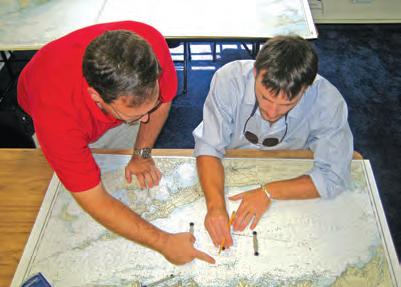
This two-day class is for everyone from novice to experienced boaters looking for formal training in piloting and navigation. Students receive lecture and hands-on training utilizing charts, plotting tools, government publications and workbook exercises. Upon completion of the class, students are able to plot a course, create a route log, plot their position by various types of fixes, calculate time, speed & distance, and perform set and drift vectors. Students learn the same techniques used in the plotting module of the USCG deck officer license exam
Topics:
• Chart orientation
• Use of government publications such as:
• Tide Tables
• Tidal Current Tables
• Light List
• Coast Pilot
• Notice to Mariners
• Navigation Rules
• Chart No. 1
• Plotting positions
• Creating routes
• Plotting three-bearing fixes, running fixes and electronic fixes
• Understanding aids to navigation
• Rules of the Road
• Trip planning (use of cruising guides, planning fuel stops, etc.)
• Dead Reckoning
• Time, speed and distance
• Set and drift vectors
Prerequisite: None
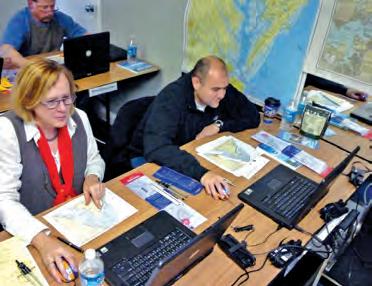
Modern integrated navigation calls for the mariner to blend traditional navigation skills with the use and knowledge of sophisticated networked electronic aids. This two-day (12-hour) class is focused on marrying paper chart navigation with electronic navigation systems, tablets and smart phones. Students will receive lecture, demonstration and hands-on training that utilizes the Annapolis School of Seamanship bridge simulator and iPads®. The simulator allows students to engage in a virtual voyage in all weather conditions and can interface with tablet based navigation systems, such as iNavx® on the iPad®.
Topics:
•Electronic Navigation Basics
•GPS Chartplotter, Radar, and AIS
• Using Radar and Collision Avoidance
• Tablet and phone based navigation using mobile apps
• Fully integrated navigation experience using our full-size ship simulator
Prerequisite: Basic Navigation & Piloting course or have a solid foundation in traditional paper chart navigation and plotting.
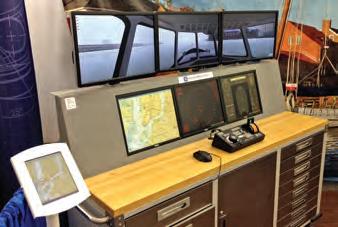
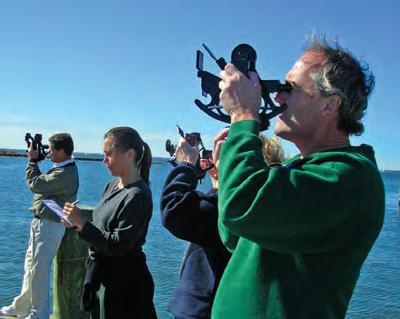
Topics:
This two-day, 12 hour course provides boaters with an overview of the celestial sky and a practical method for finding their position at sea without depending on a GPS. Students receive both lecture and hands-on instruction utilizing a sextant, the Nautical Almanac, sight reduction tables, and calculator.
• Introduction to the celestial triangle (GP, LHA, Dec, AP)
• Relating time and arc
• Measuring altitude and recording time
• Taking Sights with a Sextant
• Using the Nautical Almanac & Publication 229 (Sight Reduction Tables)
• Reducing Sights by Calculator Method
• Celestial Body Identification
Prerequisite: Students should be able to plot on a paper chart and have experience with coastal navigation

Instructor: Ralph Naranjo Worldwide sailor and former Vandestar Chair for the U.S. Naval Academy. Author of The Art of Seamanship: Evolving Skills, Exploring Oceans, and Handling Wind, Waves, and Weather
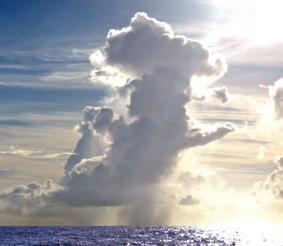
Topics:
• Weather Terminology
• Cloud Identification
• Beaufort Scale
Designed for every boater, this two-day, 12 hour introductory course gives you a firm foundation in local and regional weather. Knowing the foundations of Marine Weather can help you keep all of your boating excursions safe and enjoyable. This course combines lecture and hands-on activities designed to familiarize boaters with the basic principles of marine weather and how to use information at hand to make safe boating decisions in local waters.
• How Tides & Currents affect Sea State
• Anatomy of a Marine Weather Forecast
• Local & Regional Weather
• Electronic Resources & Apps
• Traditional Weather Tools
Prerequisite: None
This 2-day class builds on the foundation of Weather Basics class. Students will perform several practical exercises to reinforce their understanding of surface weather charts. The class also introduces students to the 3-D aspects of weather such as 500 Mb upper air flow charts, ridges, and troughs. Understanding the upper air movement and its influence on the corresponding surface systems is a critical first step in making weather routing decisions. This class is essential for anyone venturing offshore and recommended for those looking to further understand marine weather.
Topics:
• Onboard Weather Watch
• Forecast Analysis and Modeling
• Wind and Sea State
• Ocean Current Gyres
• 500 Mb upper air flow charts
• Local and Global weather systems
• Major Storms and Storm Intensity
• Tactical Decisions before and after departure
• Routing and Passage Planning
• Vessel structure, stability, and seaworthiness
Prerequisite: Marine Weather Basics
A Captain’s License is professional credential issued by the United States Coast Guard required to operate a vessel carrying passengers or cargo for hire
Operator of Uninspected Passenger Vessels (OUPV) This license allows a mariner to operate an uninspected vessel that carries up to 6 passengers for hire. Also known as a “6-Pack” License.
Master Mariner License Qualifies mariners to operate a USCG inspected vessel up to qualified tonnage. This License meets requirements for OUPV license. The Master Mariner License is broken into categories of 25, 50, or 100 gross tons.
Auxiliary Sail Endorsement This is an endorsement placed on a Master Mariner License that allows the mariner to operate inspected sailing vessels. 180 days sea service on a sailing vessel required for Inland Endorsement and 360 days sea service on a sailing vessel required for Near Coastal Endorsement.
Assistance Towing Endorsement This is an endorsement placed on a Master Mariner License that allows the mariner to engage in assistance towing. No additional sea service needed.
Inland License holder may operate a vessel for hire shoreward of the demarcation line separating high seas from harbors and rivers. (The Great Lakes and Western Rivers require additional endorsements)
Near Costal License Holders may use their license seaward of the demarcation line 100 nautical miles for OUPV and 200 nautical miles for Master Mariners.
Vessel RestrictionsUninspected vessels under 65 feet or 100 tons
vessels under 65 feet or 100 tons
Navigable WatersInland waters only Inland and Near Coastal (up to 100 nm.) Inland waters only Inland and Near Coastal (up to 200 nm.)
Total Sea Service*360 Days360 Days360 Days720 Days
Offshore Sea Service None 90 Days None 360 Days
Minimum Age 18 18 19 19
*1 Day of Sea Service = 4 consecutive hours or more underway in the same day 90 Days of Recency required (Sea Service within the past 3 years) For reference only, may not reflect current Coast Guard requirements for license
□ Application Form (CG719B)
□ Oath Form (Notarized)
□ Copy of Pay.gov Receipt
Original OUPV/Masters - $145 Renewal - $95
□ Medical Evaluation Report (CG719K) Filled out completely
□ Drug Testing Form (CG719P) (Or letter stating enrollment in random drug testing program)
□ Photocopy of TWIC Card** Must list occupation as MERCHANT MARINER
□ Proof of Citizenship (Photocopy of Passport or Birth Certificate)
□ Documentation of Sea Service
○ Sea time letter, Small Vessel Sea Service Form (CG719S),
○ Military: Enlisted “SF180” Form, Officer - Physical Reports
○ Applicant’s own vessels: must include proof of ownership document
□ Photocopies of Course Certificates
○ Master/OUPV
○ First Aid & CPR with AED
○ Auxiliary Sail Endorsement (if applicable)
○ Auxiliary Towing Endorsement (if applicable)
□ Mail or email complete application package to USCG Local Regional Exam Center (REC)
• USCG National Maritime Center Website: www.uscg.mil/nmc
• **TWIC Card: www.tsa.gov/twic
*This checklist is to be used as a reference only and may not reflect current U.S. Coast Guard regulations.
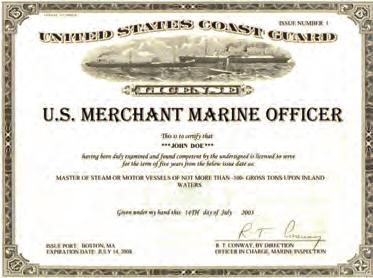
This course is for mariners who wish to obtain a Master Mariner Captain’s License up to 100 Gross Tons. Master Mariner licenses are categorized in several ways. Among these are tonnage and area of operation. With a Master’s License you are able to operate both uninspected and inspected vessels up to the tonnage printed on your license. First time master’s licenses may be limited to inland or near coastal waters up to 200 miles offshore. The tonnage and area of operation that you are eligible for is determined by the sea time you submit with your application to the Coast Guard.
Upon successful completion of our 80-hour USCG approved course, you will be issued a certificate that the Coast Guard will accept in lieu of taking the Master License Exam at the USCG Regional Exam Center (REC) for licenses up to 100 Gross Tons. The certificate is valid for one year at any REC. However, in order to obtain a license you must submit your completed application and sea service to your local REC.
Annapolis School of Seamanship provides assistance in obtaining and completing the appropriate application forms for students seeking their license.
Topic Modules:
• Rules of the Road
• Deck General
• Deck Safety
• Navigation General
• Chart Plotting
Prerequisites: None to attend class. Refer to page 12-13 for complete license requirements
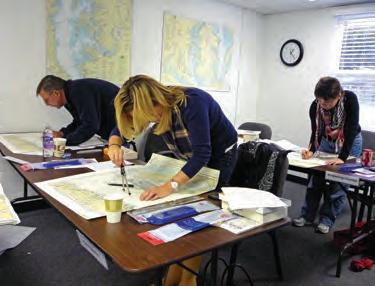
This course is for mariners who wish to obtain the OUPV (Operator of Uninspected Passenger Vessels) License. OUPV License holders are able to operate uninspected vessels for hire up to 65 feet in length and 100 gross tons. The OUPV License is commonly referred to as a “6-Pack” License because of the six passenger limit.
Upon successful completion of our 56-Hour USCG approved course, you will be issued a certificate that the Coast Guard will accept in lieu of taking the exam at the USCG Regional Exam Center (REC). The certificate is valid for one year at any REC. However, in order to obtain a license you must submit your completed application and sea service to your local REC.
Annapolis School of Seamanship provides assistance in obtaining and completing the appropriate application forms for students seeking their license.
Topic Modules:
• Rules of the Road
• Deck General
• Deck Safety
• Navigation General
• Chart Plotting
Prerequisites: None to attend class. Refer to page 12-13 for complete license requirements

This three-day course is designed for mariners who already possess an OUPV license or who have recently completed the OUPV Captain’s License class and would like to upgrade to a Master Mariner license. Upon successful completion of this 24-hour USCG approved course, you will be issued a certificate that the Coast Guard will accept in lieu of taking the exam at the USCG Regional Exam Center (REC). The certificate is valid for one year at any REC.
To obtain a license, you must submit your completed application and sea service to your local REC in addition to the certificate.
Annapolis School of Seamanship provides assistance in obtaining and completing the appropriate application forms for students seeking their license. The subjects covered in this course include:
Topic Modules:
• Deck General
• Deck Safety
Prerequisites: Student must have a current valid OUPV license or have taken the OUPV class at Annapolis School of Seamanship within the past year. Refer to page 12-13 for complete license requirements
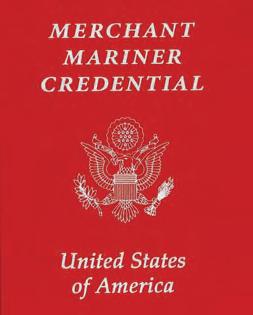
Topic Modules:
• Rules of the Road
This course is intended for mariners, holding an OUPV or Master Mariner License up to 100 gross tons, who are renewing their license and do not have 360 days sea service since the last issuance of their license. Upon successful completion of this 8-hour USCG approved course, students will be issued a certificate that the Coast Guard will accept in lieu of taking the exam at the USCG Regional Exam Center (REC). The certificate must be submitted to any REC within one year of issuance.
• Deck General and Deck Safety
• Navigation General

Topics:
• ‘72 COLREGS
• US Inland Rules
This course is intended for individuals who are required to retest on the Rules of the Road for licensing purposes. Upon successful completion of this 16hour USCG approved course, you will be issued a certificate that the Coast Guard will accept in lieu of taking the exam at the USCG Regional Exam Center (REC). The certificate must be submitted to any REC within one year of issuance.

This 8-Hour First Aid & CPR with AED class is designed for all mariners, both recreational and professional. The class is approved by the US Coast Guard to satisfy the requirements for mariners and satisfies the requirements
for a Coast Guard Captain’s license. While much of the information and training is the same as what you would receive in other land-based First Aid and CPR classes, instructors emphasize and include additional information on issues pertinent to professional mariners and recreational boaters. Circumstances involving waterborne accidents require specific training that may not be addressed in other First Aid & CPR classes.
Students will also be trained in the use of Automated External Defibrillators (AED) like the ones you may have seen in airports. AEDs are essential lifesaving equipment for victims of life threatening cardiac arrhythmias such as ventricular fibrillation or tachycardia. In situations where emergency medical care will be delayed such as aboard a vessel, AEDs can mean the difference between survival and death.
Upon successful completion of this class, students will receive a First Aid & CPR with AED certificate.
Topics:
• First Aid • CPR • AED
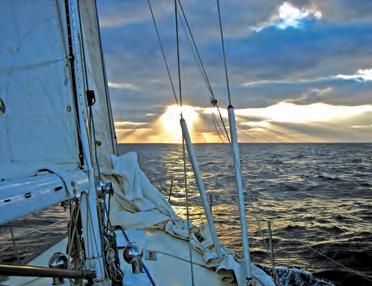
The Auxiliary Sail endorsement is required for Master Mariners looking to operate sailing vessels carrying passengers for hire. Upon successful completion of this 4-Hour USCG approved course, you will be issued a certificate that the Coast Guard will accept in lieu of taking the exam at the USCG Regional Exam Center (REC). The certificate is valid for one year at any REC. However, in order to obtain an auxiliary sail endorsement you must submit your completed application including sea service on sailboats to your local REC.
Topics:
• Sailing Basics
• Sailing Procedures
• Sailboat Design

Topics:
• Towing Safety
• Towing Procedures
• Towing Equipment
The Assistance Towing Endorsement is required for Master Mariners looking to operate commercial assistance tow boats. Upon successful completion of this 4-Hour USCG approved course, you will be issued a certificate that the Coast Guard will accept in lieu of taking the exam at the USCG Regional Exam Center (REC). The certificate is valid for one year at any REC.
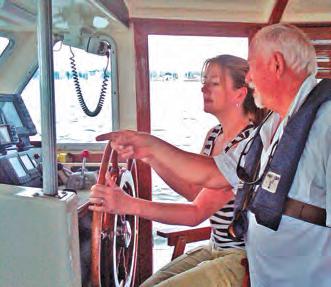
Whether you are just getting into boating, bought a new boat, need a refresher or making the switch from sail to power, private instruction sessions can give you the knowledge and peace of mind to enjoy a relaxed day on the water while keeping your crew and vessel safe. With private instruction, the training is custom-tailored to your specific needs with endless learning options. The sessions can involve any combination of training from docking practice on your own boat, to a classroom course in navigation, to close quarters maneuvering aboard our boat. Each private instruction course is specially designed to meet your specific needs.
Popular Topics Include: (but are not limited to)
• Docking
• Close-Quarters Maneuvering
• Boat Handling
• Anchoring
• Line-Handling
• General Systems Overview
• Electrical Systems
• Diesel Engines
• Navigation
• Piloting
• Route Planning
• Chart Plotting
• Radar & Electronic Navigation
• Safety Procedures
• Cruising for Couples (additional cost if 2 instructors are required)
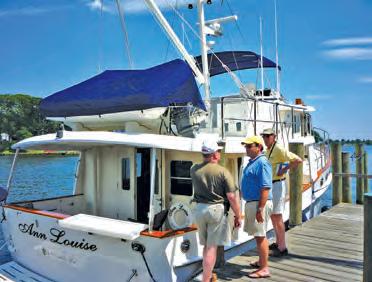
Popular consulting topics include:
• Pre-purchase consulting
• System Designs
• Passage & Trip Planning
• Electronics Upgrades
• Propulsion Systems
• Navigation
• Weather Routing
• Safety Products & Procedures
Finding yourself lost in the maze of marine products and services?
Want to buy a boat but not sure where to start?
Planning an extended trip and need expert advice?
We can help! Let out team of experts assist you with the important decisions that you face.
From making the decision to buy a boat to planning a long voyage, our experts can give advice and offer suggestions to ensure your confidence, without a sales pitch. Don’t see a topic that fits what you need? Ready to set up your appointment? Give us a call today!
We provide expert testimony to businesses, law firms and media outlets. Please call for further information.

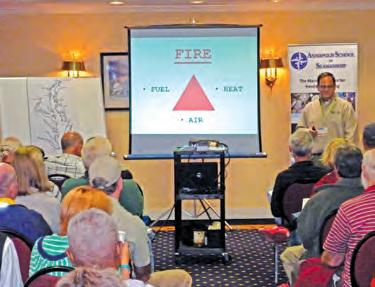
Popular choices for clubs have been:
• Single Lecture
• Lecture Series
• Event Seminars
• On-Site Training
• Flotilla Event Planning
• Rendezvous Event Planning
• Program Development
Do you love the high quality professional classes that the Annapolis School of Seamanship gives? Now you can bring that same quality and professionalism to your club or organization. We offer everything from one time lectures to Flotilla and Rendezvous organizations. Tell us what interests you and your organization and we can design a single lecture or an entire lecture series.
Our lectures and seminars cover a wide variety of topics from diesel engines to weather routing. We would love to come to your club or organization. Please contact us at the school to reserve an instructor today!
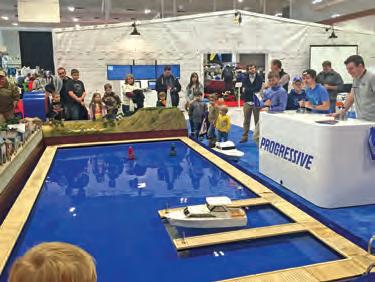
Looking to take your event from ordinary to extraordinary? Add an Annapolis School of Seamanship feature! Offer your attendees a fun and informative educational seminar, on the water training or simulator training! With years of experience and a wide variety of seminar and hands-on training, your attendees will be sure to keep coming back year after year!
Popular event features include:
• Seminars
• Paid Programming
• On the Water Education
• Educational Series
• Hands-on Activities
• Boat & Electronic Simulators
• Live Demonstrations
Check out some of the event features that we have done previously:
• Boat School
• Take the Wheel
• Cruiser’s Workshop
• Plot Your Course
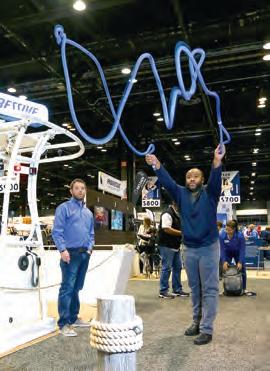
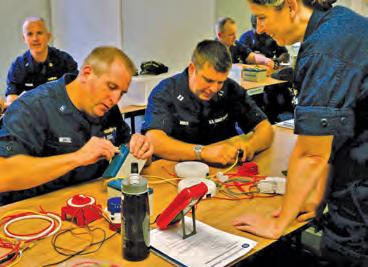
Custom Training Objectives Include
• Basic Navigation
• Electronic Navigation
• RADAR, ARPA and AIS
• Simulator Based Training
• Captain’s Licensing
• Passage Planning
• Vessel maneuvering and handling
• Anchoring & Mooring
• Marine Diesel Engines
• Marine Electrical Systems
• Marine Weather
• Maritime Consulting
On Water Training Platforms
• Power Vessels
• Sailing Vessels
• Single & Twin Engine
• Inboard & Outboard Engines
• Commercial Vessels
Annapolis School of Seamanship provides private and completely custom training solutions for federal and local law enforcement, government agencies and organizations. Classroom and/ or on-water training can be conducted at the Annapolis School of Seamanship or on-site at your facility.



